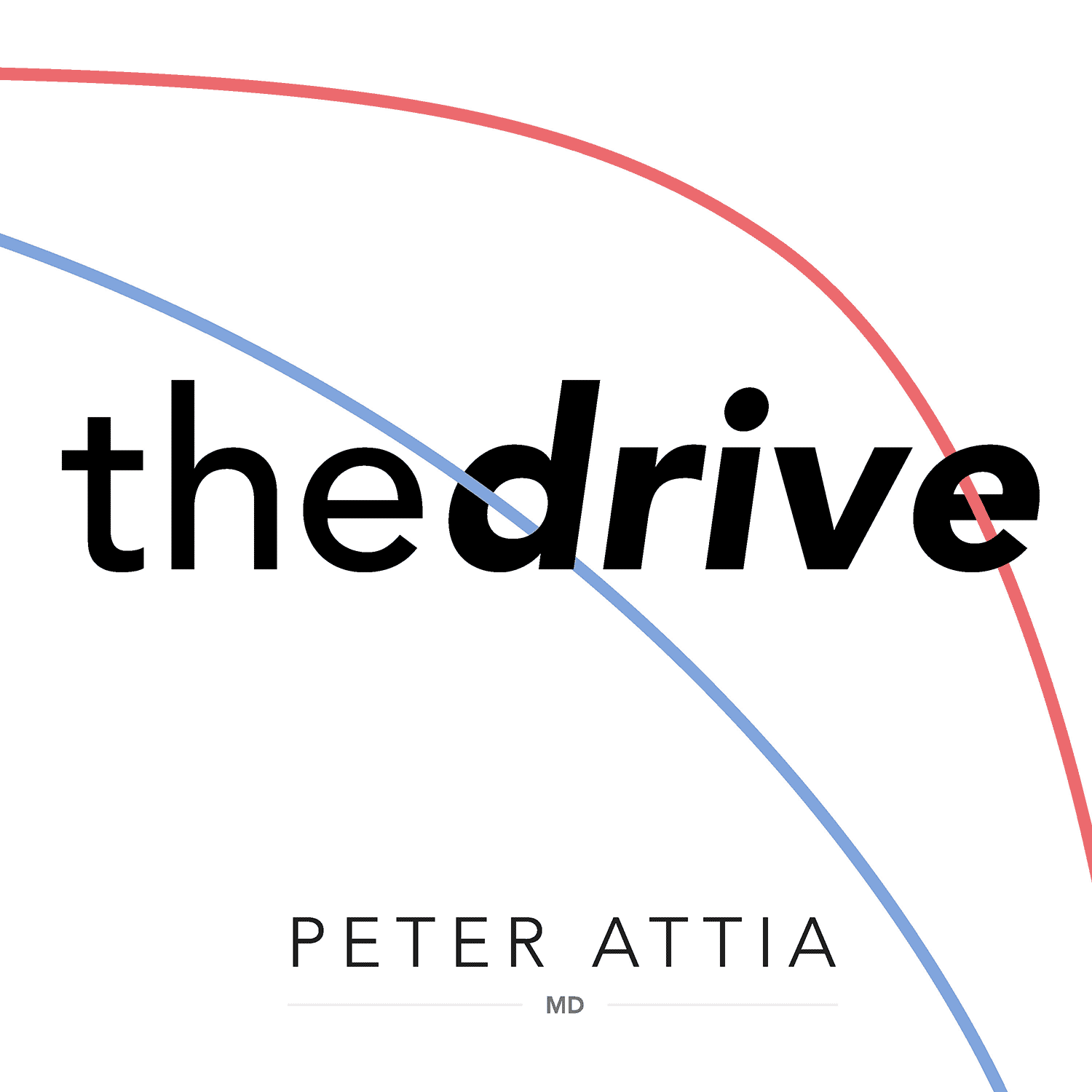
December 9, 2024 • 16min
#328 - AMA #66: Optimizing nutrition for health and longevity: myth of a “best” diet, complexities of nutrition science, and practical steps for building a sustainable diet
The Peter Attia Drive

Key Takeaways
- Nutrition research limitations: Unlike medicine with controlled single-molecule studies, nutrition research is complex due to food's heterogeneous nature
- Body's adaptability: The human body is remarkably adept at dampening nutritional effects, making many marginal dietary changes less impactful
- Core nutritional factors: The most important aspects are total energy consumption, protein content, and essential minerals/nutrients - beyond these basics, many other factors have limited impact
- Individual variation: People show significant heterogeneity in their responses to different nutritional approaches, particularly in carbohydrate tolerance
- Key health markers: Important measures include body composition (DEXA scan), metabolic health markers (glucose regulation, liver function), and inflammatory markers
Introduction
In this Ask Me Anything (AMA) episode #66, Dr. Peter Attia addresses one of the most frequently discussed yet misunderstood topics: nutrition. The episode aims to answer common questions about nutrition's role in weight management, its relationship with exercise, research complexities, and practical approaches to diet selection.
Topics Discussed
Why Nutrition is a Challenging Topic to Discuss (3:44)
Dr. Attia explains his evolving perspective on nutrition discussions, highlighting several key challenges:
- Research limitations: Unlike medicine, nutrition doesn't lend itself to rigorous controlled studies
- Certainty vs. data quality: The ratio of people's certainty to actual quality data is problematically high
- Extreme positions: The prevalence of zealous, cultish approaches to specific diets is off-putting
Evolution of Perspective on Nutrition (7:19)
Dr. Attia describes his gradual shift in approach to nutrition:
- Clinical experience revealed the complexity of individual responses to nutrition
- Body's dampening effect on nutritional inputs often reduces the impact of marginal dietary changes
- Core principles matter most:
- Total energy consumption
- Protein content
- Essential minerals and nutrients
Measurable Health Markers Related to Nutrition (9:57)
Several key measures can help monitor nutritional status:
- Anthropometric data:
- DEXA scan results (lean mass, body fat, visceral fat)
- Liver fat measurements
- Metabolic health markers:
- Glucose regulation (CGM data, HbA1C)
- Uric acid levels
- Liver function tests
- Oral glucose tolerance tests
- Inflammatory markers:
- C-reactive protein
- White blood cell count
- Nutritional deficiencies/excesses:
- B12 levels
- Mercury levels
Nutrition and Exercise Relationship (12:48)
The episode begins to explore the complex relationship between nutrition and exercise in weight management, though the full discussion is only available to premium members.
Conclusion
This AMA episode emphasizes the importance of approaching nutrition with nuance and understanding its complexities. Dr. Attia advocates for focusing on fundamental principles while recognizing individual variation in nutritional responses. The discussion highlights the need for measurable markers to evaluate nutritional status and the importance of moving away from extreme, one-size-fits-all approaches to diet.
Note: The full episode contains additional detailed discussions on nutrition and exercise relationships, best diet approaches, and practical dietary recommendations, but these are only available to premium subscribers.